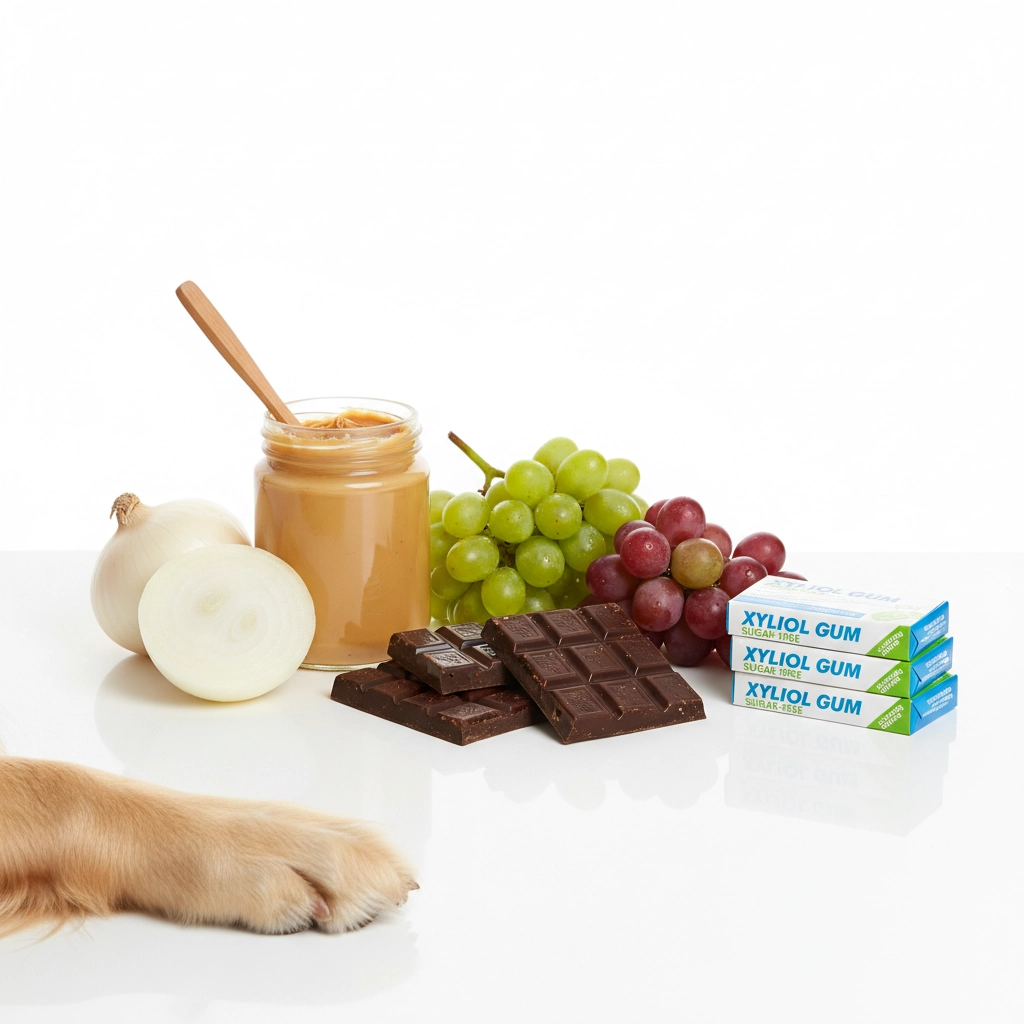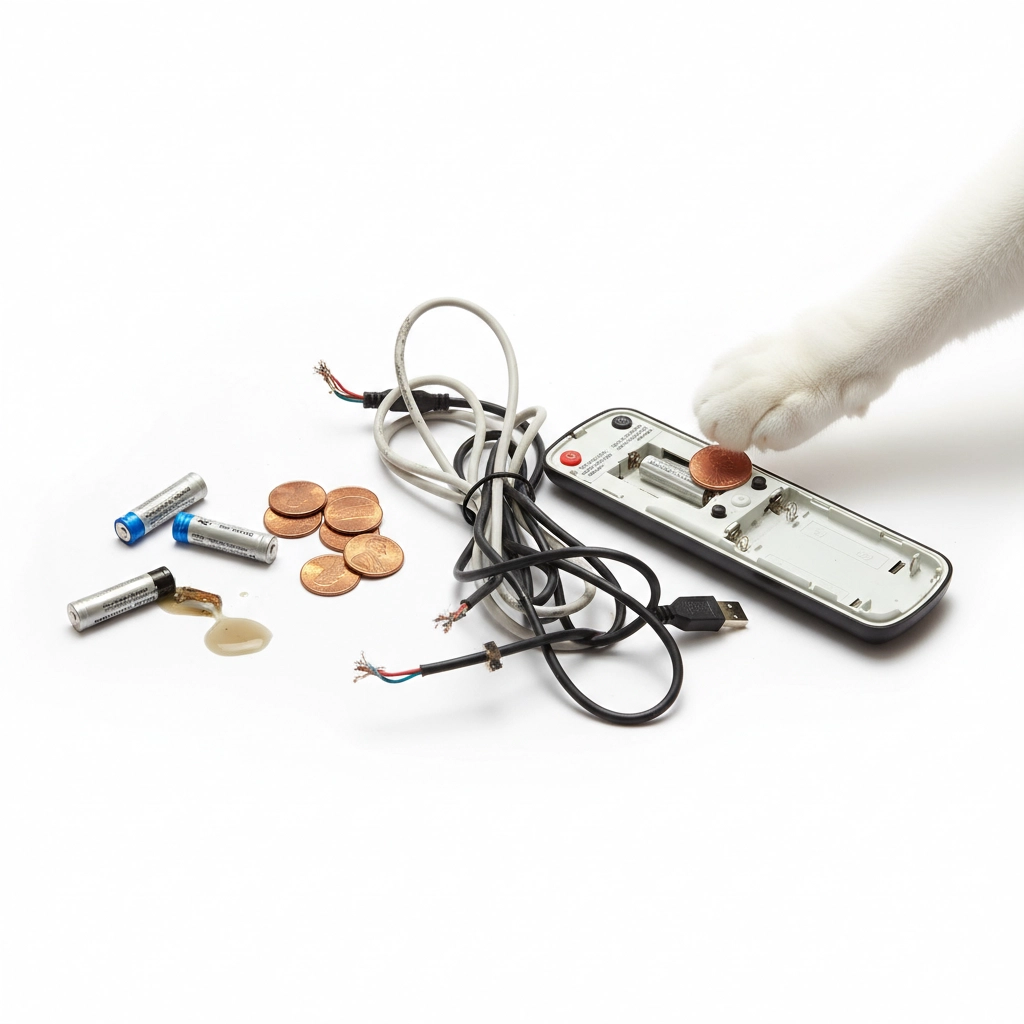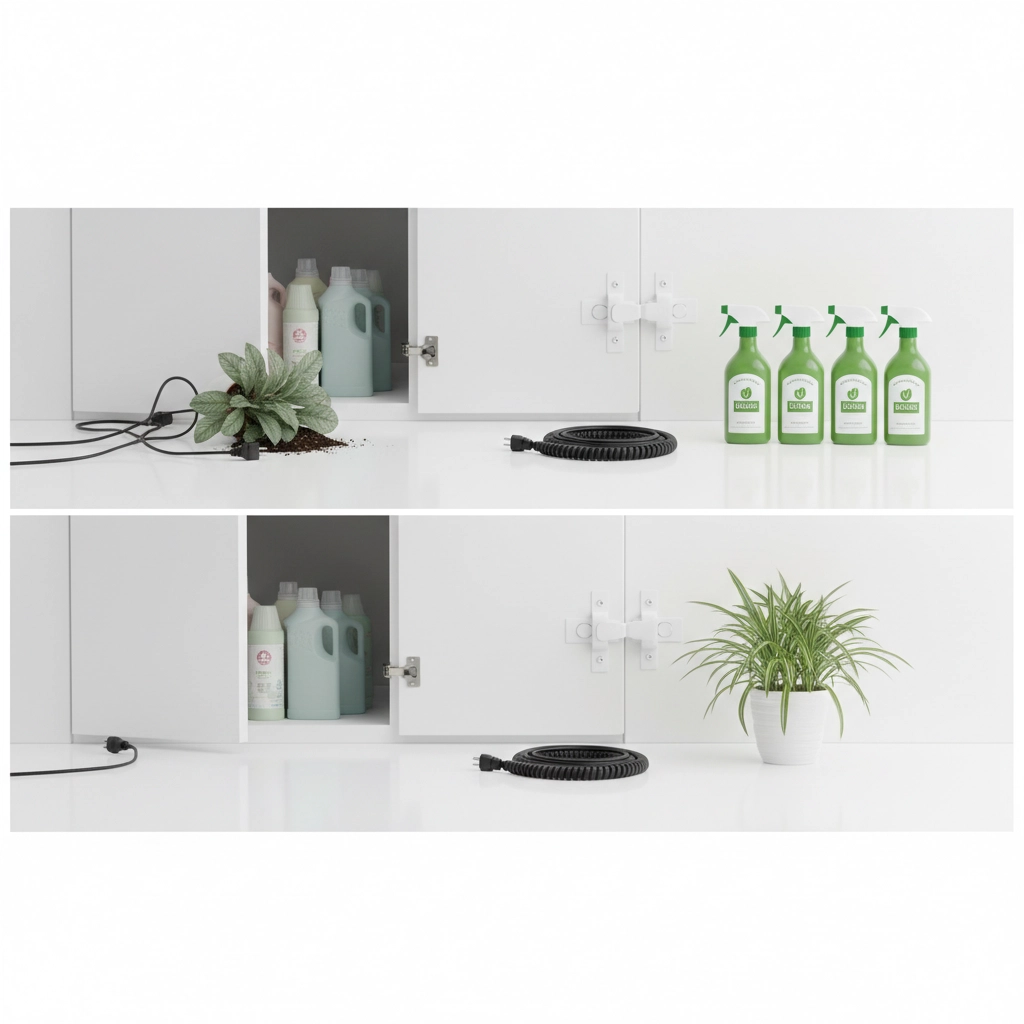Your home is your pet's kingdom, but it might also be hiding some serious dangers right under their curious noses. From that innocent-looking houseplant to the cleaning supplies tucked under your sink, everyday items can pose real threats to our furry family members. The good news? With a little awareness and some smart pet-proofing, you can create a safe haven that lets your pets explore without putting them at risk.
The Kitchen: Where Delicious Becomes Dangerous
Your kitchen probably feels like the heart of your home, but for pets, it's also ground zero for potential poisoning. Chocolate is the classic no-no that most pet parents know about, but the danger list goes way beyond that sweet treat.
Grapes and raisins can cause kidney failure in dogs, even in small amounts. Nobody knows exactly why, but the risk is real enough that even a few dropped grapes during snack time could spell trouble. Onions and garlic might make your cooking smell amazing, but they can damage your pet's red blood cells and cause anemia.
Here's one that catches many people off guard: xylitol. This artificial sweetener is everywhere – sugar-free gum, mints, diet foods, even some peanut butters. For dogs especially, xylitol can cause a rapid drop in blood sugar that can be life-threatening.
Alcohol is another obvious danger, but remember it's not just beer and wine. Vanilla extract, some bread dough, and even certain cleaning products contain alcohol that could harm your pet.
The easiest fix? Keep all food sealed and out of reach. Those curious paws are surprisingly good at opening cabinets and containers.

Cleaning Supplies: The Hidden Chemical Minefield
Walk through your home and count how many cleaning products you have. Bathroom cleaners, kitchen degreasers, laundry detergent, glass cleaners – they're everywhere, and they're all potentially toxic to pets.
Bleach and ammonia-based cleaners can cause severe chemical burns if your pet walks through a freshly cleaned area or decides to investigate that interesting smell. Drain cleaners and oven cleaners are particularly nasty because they're designed to break down tough substances – imagine what they could do to your pet's delicate tissues.
Don't forget about essential oils either. While they might seem natural and harmless, many essential oils like tea tree, eucalyptus, and citrus oils can be toxic to cats and dogs when ingested or even absorbed through their skin.
Fabric softener sheets deserve special mention here. They smell great, feel soft, and many pets love to shred them. Unfortunately, the chemicals that make them work can cause digestive upset or worse if eaten.
Medicine Cabinet Mayhem
Your medicine cabinet is basically a pharmacy, and just like you wouldn't give random medications to a child, pets can't handle human drugs either. Ibuprofen and acetaminophen (Tylenol) are particularly dangerous – what might be a normal dose for you could be fatal for your pet.
Antidepressants, ADHD medications, and heart medications are also major concerns. Many of these come in flavored forms that make them appealing to pets, which increases the risk of accidental ingestion.
Even vitamins and supplements can be problematic. Iron supplements, vitamin D, and certain herbal remedies can cause serious issues in pets.
The solution is simple but important: keep all medications in closed containers, preferably in a cabinet or drawer that pets can't access.
Household Items That Pack a Punch
Some of the most dangerous items in your home are things you probably handle every day without thinking twice.
Batteries are a big one. If your pet chews on a battery, they don't even need to swallow it whole to be in trouble. Just puncturing the outer casing can expose them to caustic chemicals that can burn their mouth, throat, and digestive system.
Pennies minted after 1983 contain zinc, which can cause serious blood disorders in pets. It's both a choking hazard and a poisoning risk wrapped in a shiny, interesting package.
Electrical cords present a double danger – electrocution and intestinal blockage if chewed and swallowed. Young pets especially love to chew on cords, possibly because of the texture or simply out of curiosity.




















